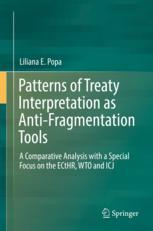

Most ebook files are in PDF format, so you can easily read them using various software such as Foxit Reader or directly on the Google Chrome browser.
Some ebook files are released by publishers in other formats such as .awz, .mobi, .epub, .fb2, etc. You may need to install specific software to read these formats on mobile/PC, such as Calibre.
Please read the tutorial at this link: https://ebookbell.com/faq
We offer FREE conversion to the popular formats you request; however, this may take some time. Therefore, right after payment, please email us, and we will try to provide the service as quickly as possible.
For some exceptional file formats or broken links (if any), please refrain from opening any disputes. Instead, email us first, and we will try to assist within a maximum of 6 hours.
EbookBell Team

4.3
28 reviewsThis book investigates whether treaty interpretation at the ECtHR and WTO, which are sometimes perceived as promoting ‘self-contained’ regimes, could constitute a means for unifying international law, or, conversely, might exacerbate the fragmentation of international law. In this regard, the practice of the ICJ on treaty interpretation is used for comparison, since the ICJ has made the greatest contribution to the development and clarification of international law rules and principles. Providing a critical analysis of cases at the ICJ, ECtHR and WTO, both prior to and since the adoption of the 1969 Vienna Convention on the Law of Treaties, the book reveals how the ECtHR and WTO apply the general rules of treaty interpretation in patterns which are similar to those used by the ICJ to address difficulties in interpreting the text of treaties. Viewed in the light of the ECtHR’s and WTO’s interpretative practices, both the VCLT’s general rules of interpretation and the ICJ’s interpretative practice serve to counteract the fragmentation of international law.